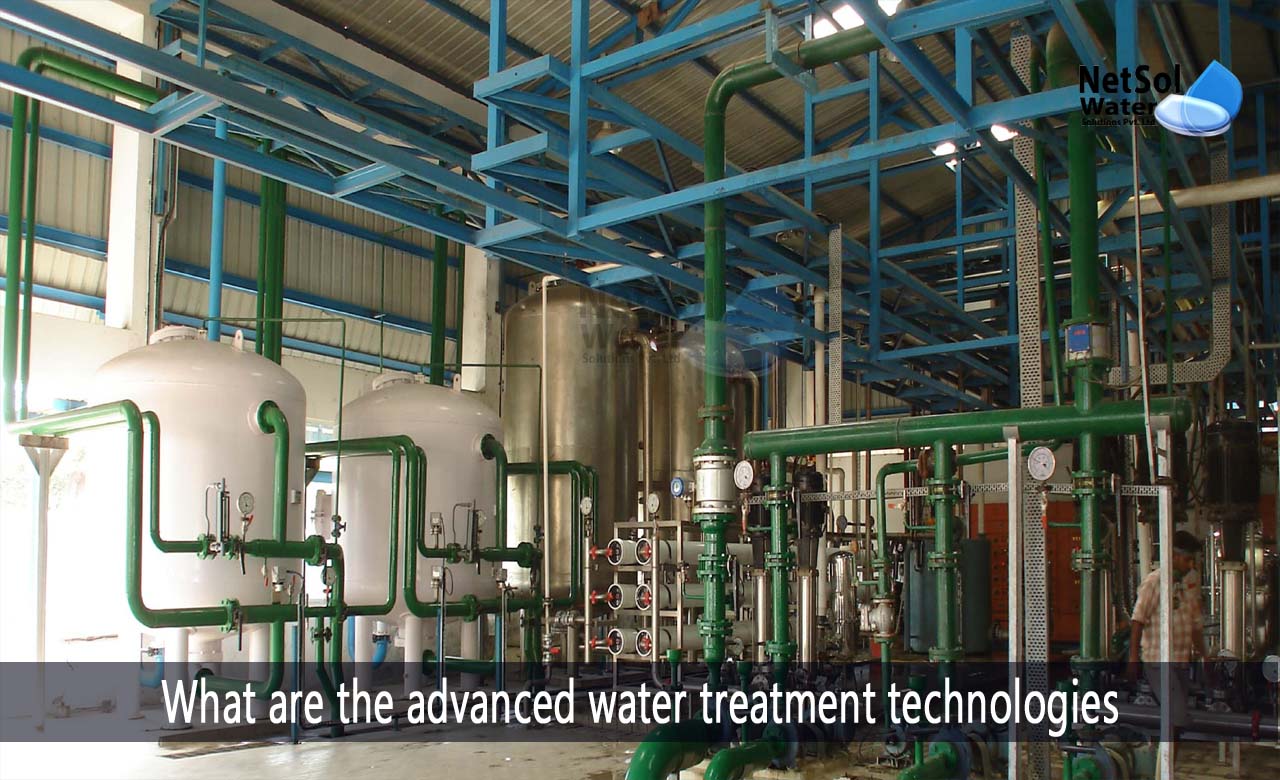Water treatment technology development and implementation have been primarily driven by three key factors: the discovery of new rarer contaminants, the adoption of new water quality standards, and cost.
Let’s discuss some of the advanced water treatment technologies, which are efficient and cost effective.
The evolvement of water treatment technologies
Clarification, granular media filtration, and chlorination were basically the only treatment procedures, utilized in municipal water treatment for the first 75 years of this century.
However, the water industry's attitude to water treatment has shifted dramatically in the last 15 years, with water utilities beginning to seriously investigate alternate treatment technologies, to the classic filtration/chlorination treatment technique.
A vast range of water treatment methods have been developed or are in the works.
What are the advanced water treatment technologies?
1. Ultraviolet Technology
UV radiation technology is largely employed in the water and wastewater treatment industries, as a disinfection technique that takes advantage of UV light's germicidal impact in the wavelength range of 250 to 270 nm.
Water typically flows in a limited zone around a number of UV lights in the procedure. Exposure to UV radiation inactivates the microorganisms. Because, exposure time is generally measured in seconds, the process is compact.
The water sector uses UV which is mainly of four types: low-pressure, low-intensity (LP-LI) UV technology; low-pressure, medium-intensity (LP-MI) UV technology; medium-pressure, high-intensity (MP-HI) UV technology; and pulsed-UV (PUV) technology.
2. Membrane Filtration Technology
Membrane treatment systems are classified into two types:
- Low-pressure membrane systems (such as microfiltration and ultrafiltration).
- High-pressure membrane systems (such as nanofiltration and reverse osmosis).
Low-pressure membranes, such as microfiltration (MF) and ultrafiltration (UF), operate at pressures between 10 and 30 psi, whereas high-pressure membranes, such as nanofiltration (NF) and reverse osmosis (RO), operate at pressures between 75 and 250 psi.
3: Membrane filtration that is integrated
It is clear that low-pressure membranes are particularly successful in removing particulates, but high-pressure membranes are effective at removing dissolved materials (both organic and inorganic).
In theory, combining the two membrane systems in succession (MF or UF followed by NF or RO), would result in a thorough treatment process train capable of eliminating the majority, of dissolved and suspended particles in water.
4. Ozone
The use of ozone in water treatment has grown, particularly for colour removal, taste and odour management, or disinfection.
Many utilities are turning to ozone as their principal disinfection technology due to increased demand, to limit chlorination by-product generation and the requirement to inactivate more resistant diseases.
Ozone also has distinct advantages over most other disinfectants, such as taste and odour control and the capacity to inactivate cryptosporidium.
5. Ion Exchange Technology
Ion exchange (IX) technology has long been employed in chemical and environmental engineering. However, it has largely been used for water softening (Ca2+ and Mg2+ removal) at the water treatment plant, or as a point-of-use treatment procedure, as well as for industrial applications such as the manufacturing of entirely demineralized water.
However, as new limitations on certain inorganic chemicals are imposed, IX technology is finding new applications in water treatment. Nitrate, arsenic, selenium, barium, radium, lead, fluoride, and chromate, are among the prime candidates for removal using IX.
6. Biological Filtration
Water treatment industry is entirely reliant on physical or chemical processes to achieve water quality objectives. Because, of concerns regarding the introduction of microorganisms into the water, the use of biological processes in water treatment has been frowned upon by the industry.
However, the development of biological filtration as the most effective technology, for producing biologically stable water has broken down this barrier.
Best manufacturers of advanced water treatment technologies in India
Netsol Water has assisted in the resolution of hundreds of water-related problems, in residential, commercial and industrial sectors by deploying a wide range of specialized, water treatment and wastewater treatment technologies.
We work with our clients to create a tailored water treatment solution that matches their individual needs, as well as an ongoing service plan to totally or partially maintain their system.
Netsol Water is Greater Noida-based leading water & wastewater treatment plant manufacturer. We are industry's most demanding company based on client review and work quality. We are known as best commercial RO plant manufacturers, industrial RO plant manufacturer, sewage treatment plant manufacturer, Water Softener Plant Manufacturers and effluent treatment plant manufacturers. Apart from this 24x7 customer support is our USP. Call on +91-9650608473, or write us at enquiry@netsolwater.com for any support, inquiry or product-purchase related query.



